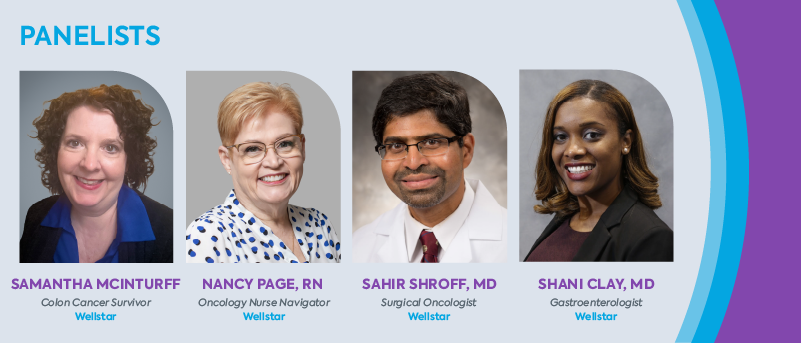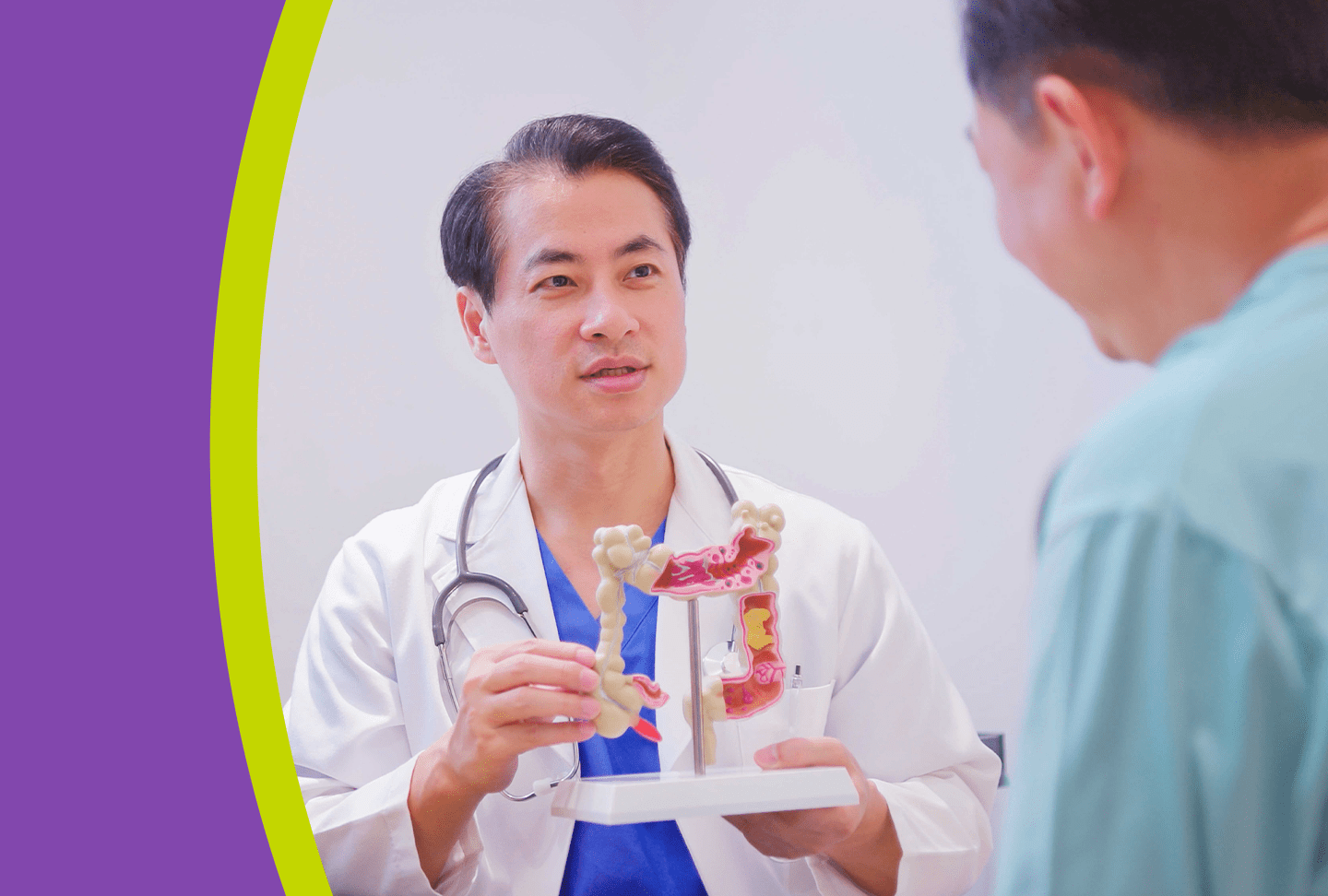More young adults—people in their 30s and 40s—are being diagnosed with colorectal cancer.
“I was in absolute shock,” said Samantha McInturff, a mother of two school-age children when she was diagnosed with stage 4 colon cancer at 48. “I was stunned. I probably didn’t ask enough questions.”
Like Samantha, patients don’t always think to ask questions on the spot. But questions come up once they’ve had a little time to process the news. That’s why we brought together a panel of gastrointestinal health experts and a colon cancer survivor to answer the questions you may have here.

Colorectal cancer staging
What stage is my cancer and how will that affect my treatment plan?
Dr. Sahir Shroff, surgical oncologist: The staging of the cancer is a way to evaluate if the cancer is localized or if it has spread. It involves multiple imaging studies and blood tests.
For colon cancer, we mostly use CT scans of the chest, abdomen and pelvis with contrast. Sometimes we do a PET scan. CT scan results typically are in within a week of having the scan. For rectal cancer, the staging is a little more involved. We also do an MRI of the rectum itself to delineate the exact location and relationship of the tumor with related structures in the pelvis. Clear identification really helps us evaluate the best treatment for each patient.
The other part of staging is looking for a tumor biomarker called carcinoembryonic antigen—or CEA—a protein in the blood. Patients excrete excess amounts of CEA if they have colorectal cancer. Checking the CEA throughout treatment is a benchmark to see if the treatments are working. We typically have bloodwork results within a few hours.
If a patient has surgery, we send tissue removed during the operation to be analyzed and tell us a more accurate stage to determine the next phase of treatment.
Colorectal cancer treatment
What are my treatment options?
Dr. Shroff: Treatment of colorectal cancer is an evolving field. There have been so many changes around the most effective combinations of chemotherapy, immunotherapy, cancer surgery and radiation oncology. Recently, a non-operative treatment option has become available for patients with an excellent response to chemotherapy.
At Wellstar, we give patients access to the most comprehensive care for colorectal cancer, which includes genetic testing, clinical trials and the highest level of complex surgical procedures. Our specialists work collaboratively and follow the latest evidence-based practices. Everything we do is geared toward giving patients the most personalized care.
The types of treatment and the order of the different treatments vary depending on the type of cancer—rectal cancer or colon cancer—and personal factors such as the stage and location of the cancer.
Dr. Shani Clay, gastroenterologist: Patients can bring their family members in to accompany them at the time of their visits so that everyone has a good understanding of the treatment plan.
Dr. Shroff: Yes, the NAPRC accreditation is excellent—it’s changed how we manage rectal cancer. Every patient is reviewed by a multidisciplinary team regardless of the stage. Decisions are made about treatment by a team of experts.




